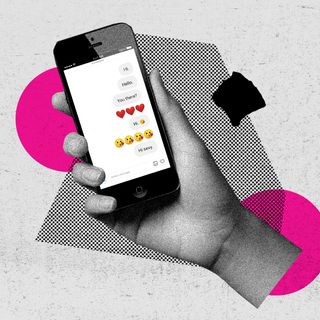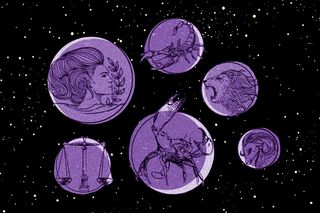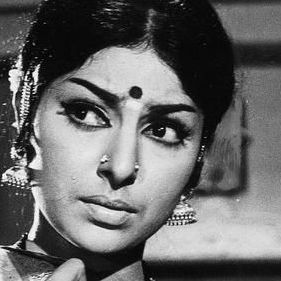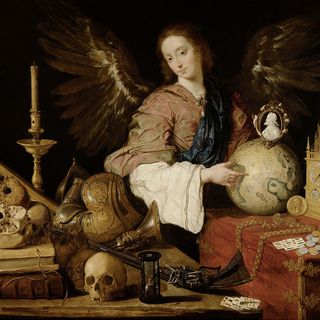
Why Do People Still Believe In Astrology?
Astrology is a coping mechanism from stress and uncertainty, and helps people create and validate a narrative for their lives.

Despite the fact that there is zero science to back it up, astrology is a billion dollar industry worldwide. In India, especially, there is a huge market for this pseudoscience — now, more so, with the advent of digital technology.
“The practice of astrology took a major step toward achieving credibility today when, as predicted, everyone born under the sign of Scorpio was run over by an egg truck,” a newspaper cartoon from 1983 reads, mocking the supremely generalized, non-specific predictions made by astrologers.
Then, despite years and layers of criticism, why do people continue to believe in this pseudoscience? According to psychologists, there are several reasons.
Human beings constantly seek narratives to help weave their past, present, and future together through their goals and expectations — and that’s where astrology comes in. “[Astrology] provides [people] a very clear frame for that explanation,” Monisha Pasupathi, a developmental psychologist at the University of Utah, told The Atlantic. Also, astrology helps create and validate the concept of self for some, and there are thousands of websites on the internet, which cater to just that through their listicles on personality traits attributable to different sun signs. Moreover, for some others, astrology also imparts a sense of belonging. “It allows you to see yourself as part of the world: “Here’s where I fit in, oh, I’m Pisces,'” Margaret Hamilton, a psychologist at the University of Wisconsin, told Smithsonian Magazine in 2016.
Studies also show that people often turn to astrology in response to stress and anxiety. “Under conditions of high stress, the individual is prepared to use astrology as a coping device even though under low-stress conditions he does not believe in it,” Graham Tyson, Professor of Psychology at South Africa’s University of the Witwatersrand, said. In fact, the first astrology column to be commissioned for a newspaper was during the Great Depression in August, 1930. Again, during the 2008 financial crisis, people sought out astrologers to foretell their future. “All of those structures that people had relied upon… started to fall apart. That’s how a lot of people get into it. They’re, like, ‘What’s going on in my life? Nothing makes sense’,” astrologer Rebecca Gordon told The New Yorker, reminiscing 2008.
Related on The Swaddle:
You Think You Know Your Correct Star Sign, But You Probably Don’t
Another major reason that propels people towards astrology is uncertainty. Studies have shown that we find not knowing what could happen even more stressful than knowing that something bad is definitely going to happen. Through its predictions, the astrological framework helps human beings achieve the certainties they crave for. “If they’re going through a time of disruption, they suddenly start to take what’s written about their sign much more seriously,” astrologer Jonathan Cainer, who writes horoscope columns for The Daily Mail, said.
A current example is the ongoing Covid19 pandemic, which has wreaked havoc worldwide, and injected a host of uncertainties into our plans for the future. And, astrologers across India, the US, and the UK, among others, have been busy making predictions about when the coronavirus will go away. In fact, astrologers and tarot card readers claim that they have been working overtime since the lockdown started — with Indian companies like AstroTalk and AstroYogi reporting that their revenues have almost doubled during the pandemic.
But, besides the big picture uncertainties, astrology also helps some people deal with their day-to-day anxieties, and helps inspire a sense of control. “[Astrology gives me] an irrational kind of hope that when I read that a positive change is going to happen in my life it actually will, reinforcing a sense of control in the future,” Rachel Sewell, a PR manager in her 20s, who checks her horoscopes about twice every week, told The Independent.
Related on The Swaddle:
Millennials and Meme Culture Have Reclaimed Astrology
Psychologists have noted that more astrologically-inclined people also tend to have an external locus of control in life, meaning they believe that their successes or failures result from external factors or forces beyond their influence, in contrast to people with an internal locus of control, who perceive themselves as the controllers of their narratives. “I think there is a real yearning and longing out there for some kind of guidance and meaning… A lot of people don’t quite know what they are looking for. I think astrology falls into that,” Stefan Durlach, a consulting psychologist from Sydney, said.
However, this deep-seated belief about celestial events interspersing with human lives, isn’t entirely harmless. In a country like India, astrology, rather than compatibility, dictates whether people can get married, besides dictating decisions about financial investments based on planetary positions. Moreover, given how powerful superstitions are already are in Indian culture, practitioners of astrology, numerology, palmistry, and other similar pseudo-sciences, often target people’s gullibility for financial gain.
In essence, astrology is a coping mechanism from the stress and uncertainty of life. As Christopher French, Professor of Psychology at University of London, had written, explaining why people believe in astrology: “Anything that appears to provide a glimpse of what is waiting around the next corner may give someone a better sense of control, even if that sense of control is illusory.”
Devrupa Rakshit is an Associate Editor at The Swaddle. She is a lawyer by education, a poet by accident, a painter by shaukh, and autistic by birth. You can find her on Instagram @devruparakshit.
Related


Woe Is Me! “My Parents Want Me to Marry Soon, But I’m Just Not Ready”
